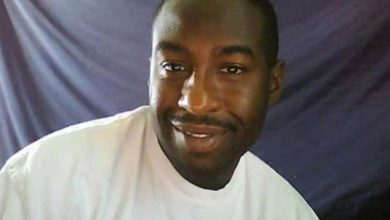What Is Congestive Heart Failure


Congestive heart failure is a scary diagnosis nobody wants to hear, but what is the condition, and how do you manage it?
Plenty of people are affected: Roughly 5.7 million Americans are living with congestive heart failure, with 670,000 new cases diagnosed each year, according to the American Heart Association (AHA).
But in reality, having heart failure doesn’t mean that your heart will never work properly again. Just like there’s more than one reason for heart failure, there are several medical treatments available to help you live well with the condition, according to the National Heart, Lung, and Blood Institute (NHLBI).
To better understand how to prevent and manage heart failure, it is important to learn what it is, its stages, symptoms, causes, treatments, and the measures you can take to help lower your risk of developing the condition.
What is Congestive Heart Failure?
Congestive heart failure occurs when your heart muscle is too stiff, weak, or damaged to pump enough blood to meet your body’s needs, according to the NHLBI.
The condition can manifest itself in one of two ways:
- Acute heart failure comes on suddenly
- Chronic heart failure develops over time
Both can lead to additional medical conditions, especially if left untreated. These include liver or kidney damage, irregular heartbeat, cardiac arrest, and heart valve disease.
RELATED: Day 1: Just Diagnosed with Heart Failure
What Are the 4 Stages of Congestive Heart Failure?
According to the National Center for Biotechnology Information, the four stages of congestive heart failure are:
- Stage A: A high risk for developing heart failure is present, but there are no symptoms or structural damage to the heart.
- Stage B: Structural damage to the heart is present with no symptoms.
- Stage C: Both structural damage and symptoms are present.
- Stage D: This is end-stage heart failure, which requires advanced treatment interventions such as a heart transplant.
RELATED: Which Heart Failure Device Is Right For You?
What Causes Congestive Heart Failure?
The causes of heart failure depend on the type that you have, states the NHLBI. Most typically, the condition occurs on the left side of your heart, which pumps oxygen to the rest of your body.
The measure for this pumping efficiency is known as “ejection fraction.”
These genetically inherited heart conditions can all cause left-sided heart failure because they lower ejection fraction:
- heart attack
- coronary heart disease
- heart valve disease
- irregular heartbeat
For those with normal ejection fraction, left-sided heart failure is most typically caused by:
Right-sided heart failure is usually caused by left-sided heart failure.
RELATED: Can You Tell If Your Own Heart Is Failing?
Congestive Heart Failure Symptoms
Since symptoms are not yet present in Stages A or B, it may be difficult to know if you have heart failure. For this reason, the AHA recommends having regular screening tests administered by your doctor. These screenings consist of blood pressure readings, cholesterol profiles, blood sugar measurements, and body mass index (a measurement of height and weight) readings.
Once symptoms of heart failure appear, they may differ depending on whether you have left-sided or right-sided heart failure, according to the NHLBI.
Left-sided symptoms include:
- Shortness of breath
- Weakness
- Coughing
- Extreme tiredness
- Difficulty sleeping in a horizontal position
- Blue-tinted fingers and lips
- Trouble concentrating
Right-sided heart failure symptoms include:
- Excessive urination
- Nausea
- Loss of appetite
- Weight gain
- Swelling of the extremities
- Abdominal pain
RELATED: 5 Heart Failure Symptoms Doctors Commonly Miss
Congestive Heart Failure Treatment
The Cleveland Clinic states that heart failure treatment options depend on the stage you’re experiencing.
Typical Stage A and Stage B treatments include diet, exercise, and lifestyle changes, such as quitting smoking and drinking. Medications to treat cholesterol, blood pressure, diabetes, and certain heart conditions may also be administered. In Stage B, surgical interventions are sometimes recommended, such as removing blockages or repairing heart valves.
People with Stage C and Stage D heart failure may be prescribed medications to slow their heart rate, as well as additional dietary and lifestyle restrictions. Sometimes a cardiac defibrillator is surgically implanted to help regulate the heart.
RELATED: Can Heart Failure Be Reversed With Exercise?
FAQs About Congestive Heart Failure
Pretty much, yes. “Congestive” just means fluid can build up when your heart isn’t pumping the way it should. So whether your doctor says heart failure or congestive heart failure, they’re talking about the same condition — and both can be managed with the right care.Is congestive heart failure the same as heart failure?
Not cured, but definitely controlled. Many people live long, full lives with heart failure once they start treatment and make healthy lifestyle changes. Medication, movement, and a heart-healthy diet can help you feel stronger and stay out of the hospital.Can congestive heart failure be cured?
It really depends on your stage and how well you stick to your treatment plan. The good news? When it’s caught early and managed properly, people can live for years, even decades, with heart failure. Staying consistent with your care team is everything.What’s the life expectancy for someone with congestive heart failure?
Listen to your body. If you notice more swelling in your feet or legs, sudden weight gain, shortness of breath, or unusual fatigue, don’t brush it off. Those are signs your heart may be working harder than it should. Call your doctor as soon as you notice changes.How do you know if heart failure is getting worse?
Salt is the big one. Too much sodium makes your body hold on to fluid, which strains your heart. Try to limit processed foods, fried foods, and anything super salty. Go for fresh veggies, fruit, whole grains, and lean protein. Think of it as feeding your heart what it needs to keep loving you back.What foods should I avoid with congestive heart failure?
How to Prevent Congestive Heart Failure
A recent study of nearly 9,500 people that was published in the Journal of the American College of Cardiology revealed that those who smoked cigarettes had twice the rate of heart failure as nonsmokers.
“We hope our results will encourage current smokers to quit sooner rather than later since the harm of smoking can last for as many as three decades,” senior study author Dr. Kunihiro Matsushita, said in a news release that accompanied the study.
In addition to quitting smoking, the U.S. Centers for Disease Control and Prevention also recommends eating a healthy diet, managing your weight, exercising consistently, taking your medications as directed, and getting regular health screenings and medical checkups to help prevent heart failure.
RELATED: Heart Failure In Your 20s? The Unknown Condition That Needs Awareness





